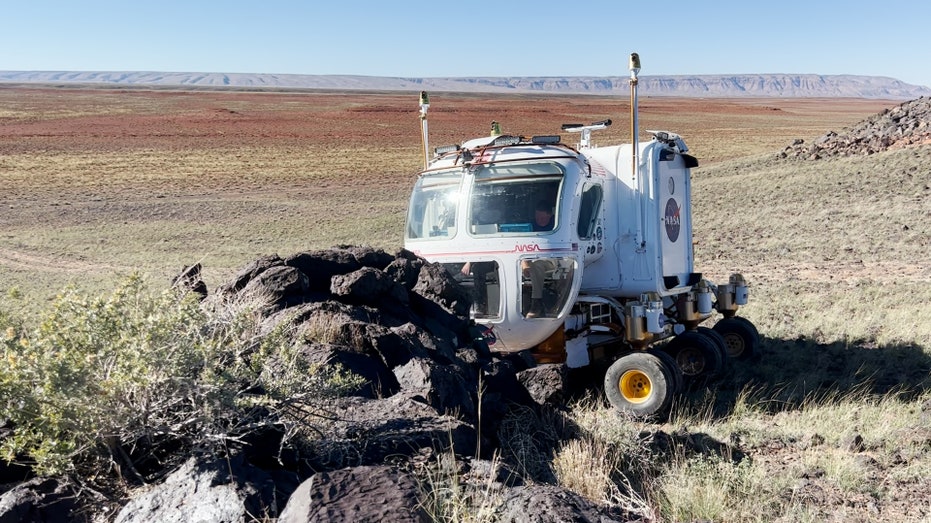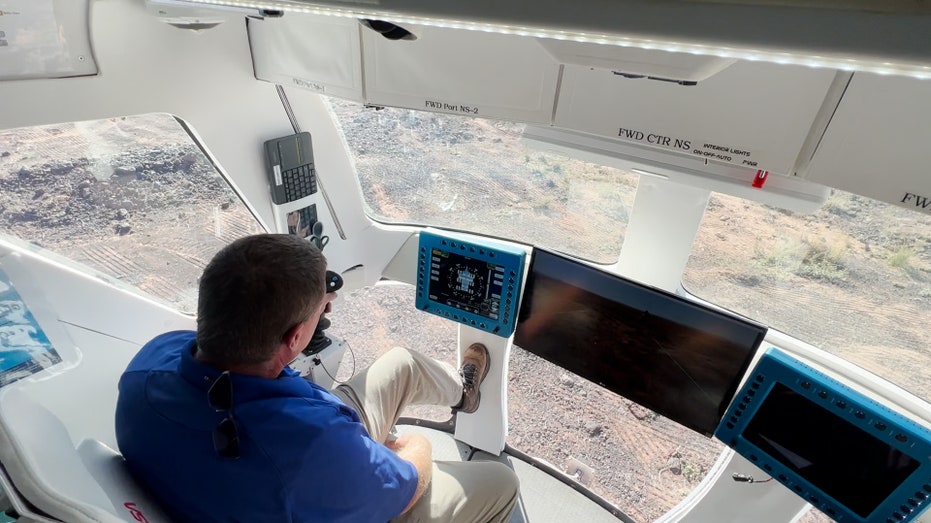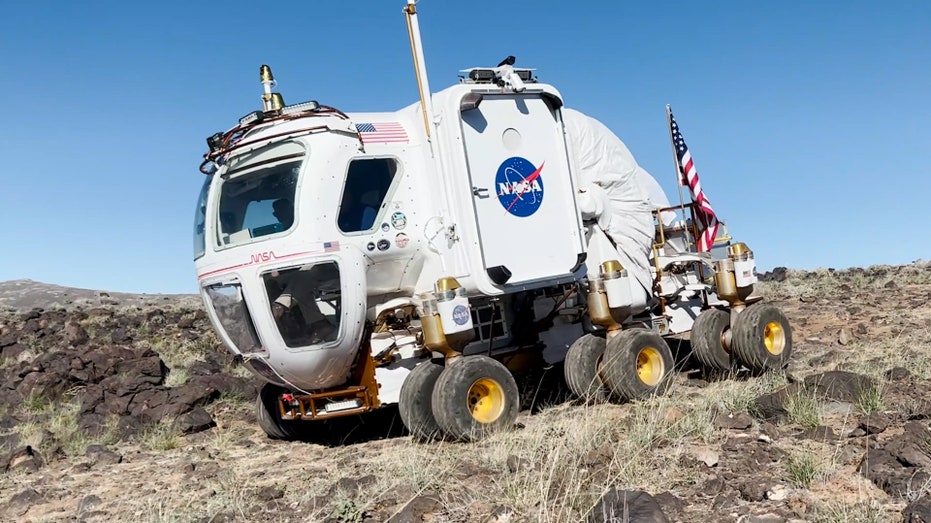NASA scientists working on ground missions in preparation to put American boots back on the moon
Research teams are working to develop a new pressurized moon rover in Arizona
NASA scientists working on ground missions in preparation to put American boots back on the moon
To help prepare for future missions to the moon and eventually Mars, NASA is testing a prototype pressurized moon rover in Northern Arizona.
FLAGSTAFF, Ariz. – NASA plans to launch the rocket ship Artemis I into space in just less than a month. It’s part of the plan to get Americans back on the moon and to explore more of space. It would be the first time in five decades since the Apollo missions.
The Desert Research and Technology Studies (Desert RATS) NASA team and partners, including the United States Geological Survey, have been practicing rover operations about an hour away from the Grand Canyon for just over two weeks. The training mission primarily focuses on conducting pressurized rover operations and improving current technology. NASA experts say these skills are key elements of future Artemis missions.
The rover that is currently being tested was built more than a decade ago. The teams of scientists are working to improve the current technology that is being used.

NASA runs training missions in Flagstaff, Arizona, because the landscape is similar to what astronauts would experience on the moon. (FOX / Fox News)
"We’re starting by testing here on Earth, then moving on to testing on the moon, and then using the moon as a steppingstone to Mars," Desert RATS mission manager Barbara Janoiko said.
NASA REVEALS ARTEMIS I'S NEXT LAUNCH ATTEMPT
Desert RATS crew members are simulating the lunar missions in the desert by living and working in the rover. During these exercises, NASA and the Japan Aerospace Exploration Agency are gathering data about the pressurized rover’s design, cabin configuration, driving modes, timeline constraints and missing operations to support potential design concepts for future pressurized rovers.
SPACEX LAUNCHES 54 SATELLITES INTO EARTH'S ORBIT

This prototype pressurized moon rover is controlled by a single joystick and the cockpit is able to swivel to help astronauts explore and view different areas on the moon, and eventually, Mars. (FOX / Fox News)
"We are contributing in a very small way to determining how to explore the lunar surface and then Mars as a part of Artemis," Janoiko said.
The moon rover has several functions including a way to crab walk, which would allow the astronauts to drive over rough terrain and explore never-before seen parts of the moon.
"We’ll be at the lunar South Pole region, so there will be a whole different set of geology and lessons to be learned from exploring a different part of the moon than before," Janoiko said.

NASA is using this prototype pressurized moon rover to learn more about the current technology limitations to help build a newer version for future Artemis missions. (FOX / Fox News)
GET FOX BUSINESS ON THE GO BY CLICKING HERE
NASA expects to use these pressurized moon rovers beginning with Artemis III, which is expected to take place in 2025. This mission aims to put the first woman and the first person of color on the moon.





















